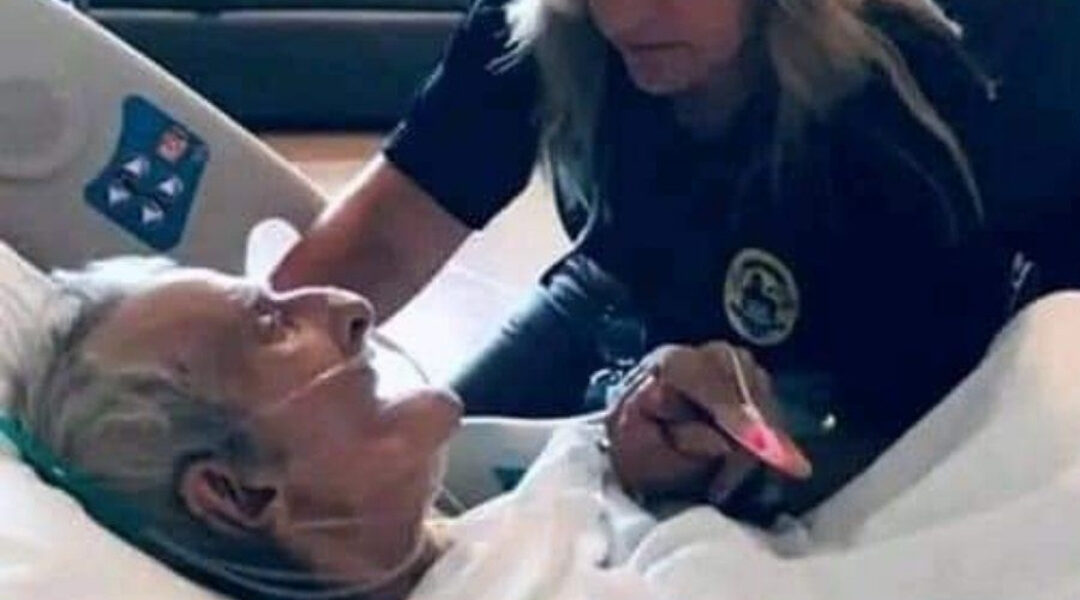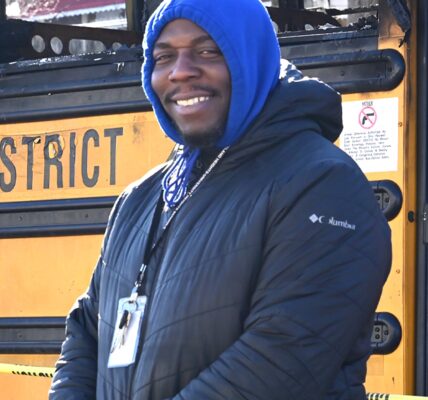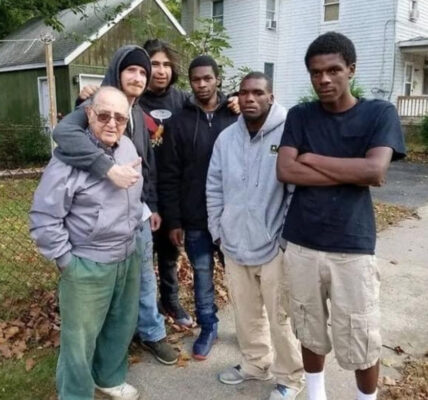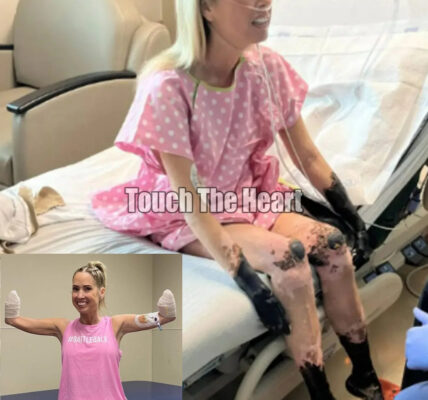It’s easy to look at the photo and see what seems obvious — a woman sitting beside an elderly man, her hand gently resting over his, her face filled with quiet compassion. You might think she’s his granddaughter, maybe his daughter, saying goodbye to a loved one.

But the truth is far more extraordinary.
The woman in that photo is Officer Dena Walker Pauly of the Lawrenceville Police Department. The man lying in that bed is named Bob. And two years ago, they were complete strangers.
Their story began the day Officer Pauly was dispatched to a pawn shop. Staff there had called police because an elderly man — frail, confused, and barely able to speak — had wandered in, and they didn’t know how to help him.
When Officer Pauly arrived, she found Bob sitting quietly, struggling to communicate. A stroke had left him non-verbal. His clothes were worn, his body thin, his eyes filled with the kind of exhaustion that comes from years of loneliness.
Bob had lived most of his life on the streets. No family. No friends. No one to call when he was hungry or sick. His life had been a long, silent battle against poverty — and the world had largely passed him by.
Officer Pauly could have filed a report, called social services, and moved on. But something about Bob stopped her. Maybe it was the way he looked at her — a mixture of fear and trust. Maybe it was the quiet voice inside her heart that said, don’t walk away.
So she didn’t.
She offered to drive him home so she could see what he needed. When she stepped into his small apartment, her heart broke. The space was barely livable — no food, no clean clothes, trash scattered everywhere. It was clear that Bob hadn’t just been surviving alone; he’d been forgotten.
That day changed everything.
Though she had been dispatched by radio, Officer Pauly always said she was truly sent by God. She rolled up her sleeves and began helping Bob herself. She taught him small things — how to throw away trash, how to care for himself, how to keep his space clean. She brought him groceries, checked in often, and made sure he was safe.
Over time, something rare happened: Bob began to trust her.
When his health worsened, she became more than a police officer — she became his guardian. She obtained power of attorney to make medical decisions for him, ensuring he would never again be neglected or alone.
And when doctors recently told her that Bob’s time was short, she made one of the hardest decisions of her life — to move him into hospice care, where he could pass peacefully, surrounded not by silence, but by love.
On that day, she sat beside him. She held his hand. She told him over and over that she loved him.
It might have been the first time anyone had ever said those words to him.
That image — a police officer holding a dying man’s hand — is more than a photo. It’s a glimpse into the true heart of law enforcement. Behind every badge is a human being who chose this work not for power, but for purpose — to protect, to serve, to care.
Officer Pauly didn’t just uphold her oath that day; she lived it.
She didn’t find family by blood, but by compassion. She gave Bob something that had been missing his entire life — dignity, care, and the knowledge that he mattered to someone.
Not all acts of heroism make headlines. Some happen quietly, in hospital rooms, with no cameras or awards — just one person sitting beside another, refusing to let them face the end alone.
Officer Dena Pauly didn’t just save a man’s life.
She gave meaning to it.




